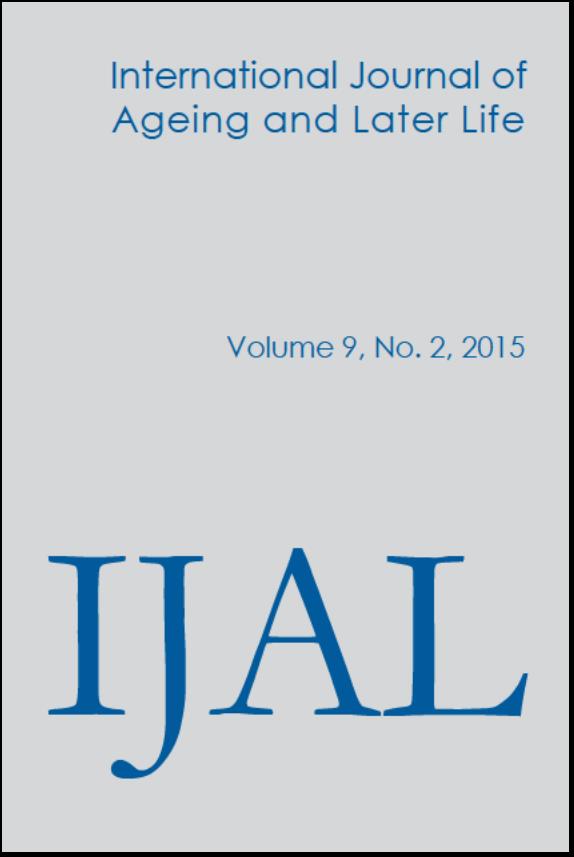Material inheritances: an affective story in the history of elderly persons
Main Article Content
Abstract
Material inheritance is an important theme in old age, tied up to the life story and with shaping the manner in which one will be remembered. This study adopts the self-confrontation method to explore the meanings and affects that elderly persons attach to the material inheritance, taking into consideration their experiences both as heirs and donors. The sample comprises five participants (80-95 years). Main findings suggest a process of transmitting material inheritance characterized by the creation of a material legacy throughout life and from both positions (donor and heir); resolution related to receiving inheritances (heir position); and transferral as a donor later on in life. This process seems to play an affective role at individual (self-autonomy vs. lost love) and familial (union vs. isolation) levels. The transmission of material inheritance represents a lifelong task that connects past, present, and future and links generations.
Metrics
Article Details

This work is licensed under a Creative Commons Attribution-NonCommercial 3.0 Unported License.
Since 2020 the International Journal of Ageing and Later Life uses a Creative Commons: Attribution license, which allows users to distribute the work and to reform or build upon it without the author's permission. Full reference to the author must be given.
References
Alford, D., Lyddon, W. & Schreiber, R. (2006). Adult attachment working models of emotion. Counselling Psychology Quarterly 19(1): 45–56. DOI: 10.1080/09515070600673687
Baars, J. (2012). Critical turns of aging, narrative and time. International Journal of Ageing and Later Life 7(2): 143–165. DOI: 10.3384/ijal.1652-8670.1272a7
Carstensen, L. & Charles, S. (1998). Emotion in the second half of life. Current Directions in Psychological Science 7(5): 144–149. DOI: 10.1111/1467-8721.ep10836825
Drake, D. & Lawrence, J. (2000). Equality and distributions of inheritance in families. Social Justice Research 13(3): 271–290. DOI: 10.1023/A:1026459406628
Finch, J. (2004). Inheritance and intergenerational relationships in English families. In S. Harper (ed.), Families in Ageing Societies: A Multi-Disciplinary Approach (pp. 164–175). New York: Oxford.
Finch, J. & Mason, J. (2000). Passing on: Kinship and Inheritance in England. New York: Routledge.
Goodnow, J. J. & Lawrence, J. A. (2013). Inheritance as People Think It Should Be: From Money to Mementos. Charlotte, NC: Information Age Publishing.
Hermans, H. J. M. (1992). Unhappy self-esteem: A meaningful exception to the rule. Journal of Psychology 126(5): 555–570. DOI: 10.1080/00223980.1992.10543388
Hermans, H. J. M., Fiddelaers, R., de Groot, R. & Nauta, J. F. (1990). Self-confrontation as a method for assessment and intervention in counselling. Journal of Counselling and Development 69(2): 156–162. DOI: 10.1002/j.1556-6676.1990.tb01478.x
Hermans, H. J. M. & Hermans-Jansen, E. (1995). Self-Narratives: The Construction of Meaning in Psychotherapy. New York: Guilford.
Hermans, H. J. M. & Oles, P. K. (1999). Midlife crisis in men: Affective organization of personal meanings. Human Relations 52(11): 1403–1426. DOI: 10.1177/001872679905201103
Hunter, E. & Rowles, G. (2005). Leaving a legacy. Journal of Aging Studies 19(3): 327–347. DOI: 10.1016/j.jaging.2004.08.002
Kohli, M. & Künemund, H. (2003). Intergenerational transfers in the family. In V. Bengston & A. Lowenstein (eds.), Global Aging and Challenges to Families (pp. 123–142). New York: Aldine de Gruyter.
Lyddon, W. J. & Alford, D. J. (2002). Life review and the self-confrontation method in older adults. In C. L. Juntunen & D. R. Atkinson (eds.), Counseling across Life Span. Prevention and Treatment (pp. 399–416). Thousand Oaks, CA: Sage. DOI: 10.4135/9781452231792.n20
Lyddon, W. J., Yowell, D. R. & Hermans, H. J. (2006). The selfconfrontation method: Theory, research and practical utility. Counseling Psychology Quarterly 19(1): 27–43. DOI: 10.1080/09515070600589719
Patrão, M. & Sousa, L. (2009). Material inheritance: Constructing family integrity in later life. In L. Sousa (ed.), Families in Later Life: Emerging Themes and Challenges (pp. 49–74). New York: Nova Science Publishers.
Pereira, M. (2009). Estudo sobre a validade da escala de afectos do Me´todo da Auto-Confrontação [Self-Confrontation Method: Validation]. Dissertação de Mestrado apresentada ao Departamento de Psicologia e Comunicação do Instituto Superior da Maia. Maia: Instituto Superior da Maia.
Prieur, B. (1999). As Heranc¸as Familiares. Lisboa: Climepsi.
Rowlingson, K. (2006). Living poor or die rich or spending the kids’ inheritance? Attitudes to assets and inheritance in later life. Journal of Social Policy 35(2): 175–192. DOI: 10.1017/S0047279405009475
Rowlingson, K. & McKay, S. (2005). Attitudes to Inheritance in Britain. Bristol: The Policy Press.
Schaie, K. W. & Willis, S. L. (2002). Adult Development and Aging (5th ed.). Upper Saddle River, NJ: Prentice Hall.
Sousa, L., Silva, A., Santos, L. & Patrão, M. (2010). The family inheritance process: Motivations and patterns of interaction. European Journal of Ageing 7(1): 5–15. DOI: 10.1007/s10433-010-0139-3
Stum, M. (2000). Families and inheritance decisions. Journal of Family and Economic Issues 21(2): 177–202. DOI: 10.1023/A:1009478019537





